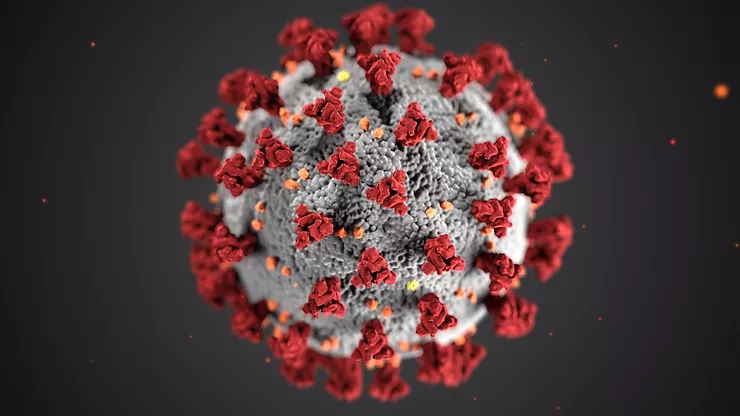
The COVID-19 vaccines that are authorized in the U.S. are effective against this variant. Vaccines can prevent severe illness and death, but it is vital to note that the vaccines are not one hundred percent effective. Fully vaccinated people can still contract infection and face illness, but their illness will not last long. That being said, vaccination can provide protection against severe disease and death from the delta variant. People should get fully vaccinated without any delay in order to protect themselves from this contagious variant.
What is Delta Variant?

Delta variant, also known as B.1.617.2, is the most dominant strain of COVID-19 in the U.S. According to the CDC, this variant can spread easily. As it is highly contagious, unvaccinated people who get infected can quickly transmit it to others. Experts estimate that a person who contracts this virus can spread it to three or four other people. This variant can be more severe and transmissible.
As mentioned above, people who are not fully vaccinated are prone to getting the infection; they must get vaccinated as soon as possible. The COVID-19 vaccines are the only protection one can get from this variant. Vaccination can prevent hospitalization, severe disease, and death.

Studies have shown that authorized COVID-19 vaccines can work against this type of variant. In fact, researchers say all the COVID-10 vaccines, be it-
-
Johnson & Johnson
-
Moderna
-
Pfizer-BioNTech
All are effective in keeping the infection rate low. Pfizer is also developing a vaccine that will combat the delta variant. Until then, people are advised to get fully vaccinated because it has been seen that unvaccinated people are at higher risk of getting infected and dying from the delta variant.
How is Delta Variant Different from Other COVID-19 Variants?

-
Delta: Also known as lineage B.1.617.2, this variant was first identified in India. It is the most common variant in the U.S. and is twice as contagious as previous variants.
-
Alpha: Also known as lineage B.1.1.7, this variant was first identified in the United Kingdom.
-
Beta: Also known as lineage B.1.351, this variant was first identified in South Africa.
-
Gamma: Also known as lineage P.1, this variant was first identified in Brazil.
All of these variants spread easily, and they affect the effectiveness of some monoclonal antibody meds. They also reduce the antibodies generated by the COVID-19 vaccine. It is extremely important to note that unvaccinated people are at greater risk of getting infected. Also, fully vaccinated people with breakthrough infections followed by the signs can transmit this infection to other people.
The only solution to save oneself is to get fully vaccinated, wear a face mask and practice social distancing. People tend to think that they cannot contract the virus after getting both doses of vaccination. Though there is a lower risk of fully vaccinated people getting an infection, they should still follow the advice and safety precautions set by WHO.
What are the Symptoms of the Delta Variant?

-
Headache
-
Fever
-
Runny nose
-
Sore throat
-
Cough
-
Loss of smell
However, data from the ZOE COVID Symptom study states that headache, fever, runny nose, and sore throat were more common in people infected with the delta variant.

What does the Delta Variant Mean for the Unvaccinated?
In the U.S., it has been seen that unvaccinated people are more prone to getting infected from this delta variant. Midwest and Southern states such as Arkansas, Missouri, Alabama, West Virginia, Georgia, Mississippi have low vaccination rates, and that is why people in these places are more susceptible to contracting the infection.

Unvaccinated people are at greater threat of developing a serious disease, hospitalization, and death. As discussed above, the number of infected people is increasing. These are those who have not taken vaccination, so it becomes important that people take action and get their doses at the earliest.
A study from the United Kingdom states that kids and unvaccinated people under the age of 50 were 2.5 times more likely to contract this variant. Well, in the U.S., COVID-19 vaccines are not available for children below 12 years. So children can only take safety precautions and stay at home to keep themselves safe. And adults above the mentioned age should get vaccinated to lower the risk of becoming infected with delta.
Centric Healthcare’s Nurses and Clinical Personnel Helps You Be More Knowledgeable About the New Delta Variant
As there is so much wrong information revolving around it, it is vital to get the right knowledge about the new delta variant. People can equip themselves with all the details about the delta variant by getting in touch with our skilled nurses and clinical personnel. At Centric Healthcare, we have knowledgeable staff that can help people understand the delta variant. By getting guidance from our professional nurses and other registered healthcare professionals, people can save themselves, their family, and especially their kids as they are more prone to contracting the infection.
Contact us right away if you have any questions, and our supportive team will clarify all your doubts and provide you with the right information.
References:
-
https://www.cdc.gov/coronavirus/2019-ncov/variants/delta-variant.html
-
https://www.webmd.com/lung/news/20210712/what-to-know-about-covid-delta-variant
-
https://www.bupa.co.uk/newsroom/ourviews/delta-variant-symptoms
-
https://www.yalemedicine.org/news/5-things-to-know-delta-variant-covid
-
https://health.ucdavis.edu/coronavirus/covid-19-information/delta-variant.html
-
https://www.mayoclinic.org/diseases-conditions/coronavirus/expert-answers/covid-variant/faq-20505779
-
https://asm.org/Articles/2021/July/How-Dangerous-is-the-Delta-Variant-B-1-617-2


